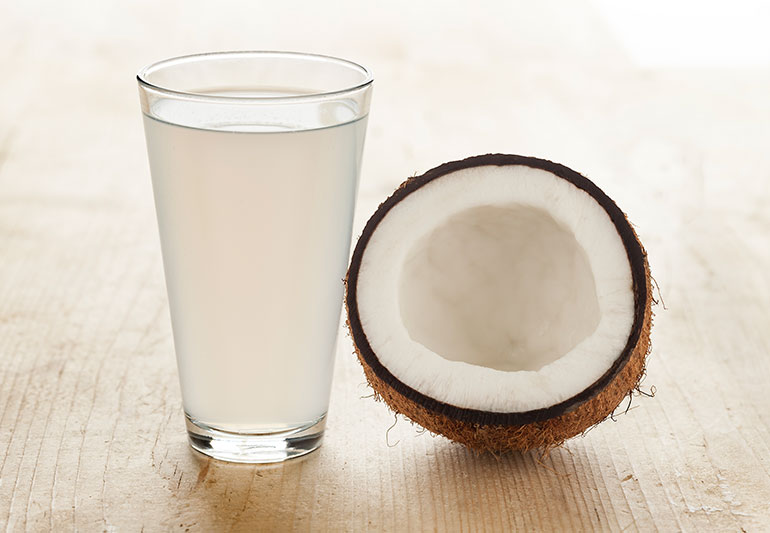Exploring the Safety of Coconut Water for Diabetics: Unveiling the Facts and Considerations
Coconut water has long been revered for its refreshing taste and potential health benefits. However, for individuals with diabetes, it is essential to carefully consider the impact of their food and beverage choices on blood sugar levels. In this article, we explore the question: Is coconut water safe for diabetics? Let’s delve into the facts and understand the potential benefits and considerations for individuals managing diabetes.

The Nutritional Composition of Coconut Water: Coconut water is the clear, liquid inside young green coconuts. It is often lauded for its natural sweetness, electrolyte content, and numerous vitamins and minerals. A 100 ml serving of coconut water typically contains about 19 calories, 3.7 grams of carbohydrates, 1 gram of fiber, and small amounts of essential nutrients like vitamin C, potassium, magnesium, and calcium. The carbohydrate content primarily comprises natural sugars.
The Glycemic Index (GI) of Coconut Water: The glycemic index is a measure of how quickly a food item raises blood sugar levels. Coconut water has a low glycemic index, usually ranging between 35-40. This means that its impact on blood glucose levels is relatively modest compared to high-GI foods, which cause a rapid spike in blood sugar. The presence of fiber and other components in coconut water may contribute to this low GI value.
Benefits of Coconut Water for Diabetics:
- Hydration: Staying well-hydrated is important for everyone, including individuals with diabetes. Coconut water can serve as a natural, low-calorie source of hydration, helping to quench thirst without causing significant fluctuations in blood sugar levels.
- Electrolyte Balance: Diabetes can sometimes lead to electrolyte imbalances due to elevated blood sugar levels or the use of certain medications. Coconut water contains essential electrolytes like potassium, which can help maintain proper balance in the body.
- Antioxidant Properties: Coconut water contains antioxidants that may have potential benefits for overall health. While more research is needed to establish the direct impact on diabetes, antioxidants play a role in reducing oxidative stress, which is associated with various complications of the condition.
Considerations and Moderation: Despite the potential benefits, it’s important for individuals with diabetes to exercise moderation when consuming coconut water. Here are a few considerations to keep in mind:
- Portion Control: While coconut water has a relatively low carbohydrate content, it still contains natural sugars that can contribute to overall carbohydrate intake. Monitoring portion sizes and incorporating coconut water into a well-balanced meal plan is advisable.
- Individual Variations: Each person’s response to coconut water may vary based on factors such as insulin sensitivity, medication regimen, and overall dietary patterns. It is recommended to monitor blood sugar levels after consuming coconut water to understand personal tolerance and adjust intake accordingly.
- Consultation with Healthcare Provider: If you have diabetes or any related health concerns, it is always prudent to consult your healthcare provider, including a registered dietitian or nutritionist, before making any significant changes to your diet or fluid intake.
- Potential Risks and Precautions: While coconut water can be enjoyed by many individuals with diabetes, there are a few considerations and potential risks to keep in mind:
- Carbohydrate Content: Although coconut water has a lower carbohydrate content compared to many other beverages, it still contains some natural sugars. Individuals with diabetes should be mindful of their overall carbohydrate intake and consider how coconut water fits into their daily meal plan.
- Blood Sugar Management: While coconut water has a low glycemic index, it can still cause a slight increase in blood sugar levels. It is important to monitor blood glucose levels after consuming coconut water and adjust medication or insulin dosages, if necessary, in consultation with a healthcare professional.
- Flavored Varieties: It is important to note that flavored coconut water products, such as those with added sugar or artificial sweeteners, may have a higher glycemic index and could negatively impact blood sugar levels. It is advisable to choose plain, unsweetened coconut water or opt for fresh coconut water whenever possible.
- Individual Sensitivities: Some individuals may have specific sensitivities or allergies to coconut. If you experience any adverse reactions, such as itching, swelling, or digestive discomfort after consuming coconut water, it is recommended to discontinue its use and consult a healthcare professional.
- Incorporating Coconut Water into a Balanced Meal Plan: To include coconut water as part of a balanced meal plan for individuals with diabetes, here are a few tips:
- Portion Control: Stick to moderate portion sizes, such as 100-200 ml of coconut water per serving. Remember that the total amount of carbohydrates consumed should be taken into account within the overall meal plan.
- Pairing with Protein and Fiber: To help mitigate the potential impact on blood sugar levels, consider consuming coconut water alongside a source of protein or fiber. For example, pairing it with a small handful of nuts or consuming it as part of a meal that includes lean protein and non-starchy vegetables can help slow down the absorption of carbohydrates.
- Personalized Approach: Every individual’s diabetes management plan may vary. It is crucial to work with a healthcare professional, such as a registered dietitian or nutritionist, to personalize your meal plan and determine the optimal amount of coconut water that suits your individual needs and blood sugar control.
Conclusion: Coconut water can be a refreshing and potentially beneficial beverage option for individuals with diabetes due to its low glycemic index, hydration properties, electrolyte content, and antioxidants. By understanding the nutritional composition, monitoring blood sugar levels, and incorporating coconut water mindfully into a well-balanced meal plan, individuals with diabetes can make informed decisions about their fluid intake and enjoy the potential benefits that coconut water has to offer. As always, consulting with a healthcare professional is key to tailoring dietary choices and managing diabetes effectively.